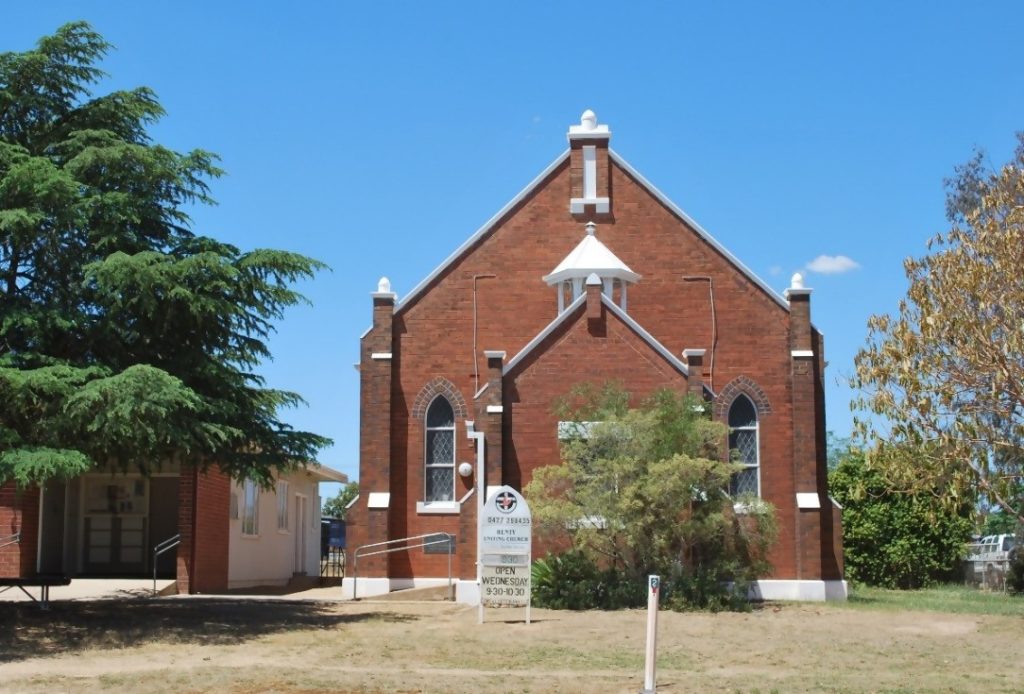Our small, aging, rural congregation has now been “ministerless” for 15 years and has managed to maintain a very viable worship presence with a team leadership approach. We are blessed to have 2 musicians, one Lay Preacher; two Lay Presiders, numerous willing worship leaders, a competent, committed Church and Elders council and some good cooks.

We can’t attract younger folk, our numbers are dwindling and we have become increasingly aware of growing pastoral care needs. In our combined congregations, and amongst our leadership, the following adversities touch our members in direct or indirect ways: Motor Neurone Disease, Chronic Fatigue Syndrome; Dementia; Cancer; Parkinson’s disease; Diabetes and eating disorders, just for starters. Then there are hospitalisations, people who are shut-in and of course deaths.
This has caused the Councils of our church to have to face some hard realities. There are not enough of us on the ground to provide the level of pastoral care that is truly needed and to keep open a place in Henty and Culcairn offering a Uniting Church style of worship.
Major threats to how we maintain ministry in two small country towns have been and still are:
- costs of administration;
- dreaded insurance;
- fatigue of the leaders; and
- not being seen by the general community as a valid church because we don’t have a Rev up front;
- being time poor, and
- being at a distance.
So we are slowly realising that:
- the point of theology, is in the end, care;
- links are needed within the congregation and the wider community to enable pastoral care
- we don’t always have to sing in worship;
- Hospitality seems to outshine talking.
So what have we have tried to do to fill the caring gap that we are slowly realising is getting wider? It has snuck up on us, and we have missed many opportunities, like Dorcas, to “mend the world one cloth at a time”. We tried a telephone RUOK month, with measured success. Now we are trying again with a text message with a “staying in contact” theme. We conduct funerals, and feel we do this well. We run a craft day once a month, which is very successful and productive. We run a monthly free luncheon for people who are elderly or shut, or anyone really – which has been a major success. We have written “intentional prayers”; focussing on the needs of specific Church family members for use in worship. This went well, but requires much thought in how you write the prayer. It isn’t just “please help so and so” but much more deliberate and specific in intent. Prayers are written with the person or the family’s consent and run for a month in worship and in our weekly sheets. We upgraded one of our church halls and it is becoming almost overused by the community!
We as Elders take the role of “how can we help” very seriously, especially when each of us also has high care needs. We are a long way off getting organised caring right but we are at least nibbling at the edges. Possibly the casual networks we all make in and out of our church family need to be strengthened by prayer and encouragement and then become intentional networks of care.
Editor’s Note: I am sure that this speaks to the experience of many, but I’d like to add a note as someone looking in from the outside. These congregations, with very small numbers in leadership, maintain an open and welcoming presence in two small, isolated towns where the theological climate is, otherwise, very conservative. They offer a home for those who don’t fit the dominant pattern of church. If you look at what they do, rather than what they think they do not do well, they serve their community by conducting funerals for church and non-church people in a very respectful and caring way. They gather people for fellowship who are otherwise isolated and lonely. They worship and they pray for one another in deep and meaningful ways. They care that their own, or their family’s ill-health prevents them from achieving a level of pastoral care which most ministers in placement would not be able to achieve. I do not have anything but admiration for this group who are a very legitimate expression of what it means to be the people of God where they live. Sometimes it is easy to be a disciple of Jesus and sometimes it is hard. Love and lovers shine in the darkness. –
Gereldine Leonard

